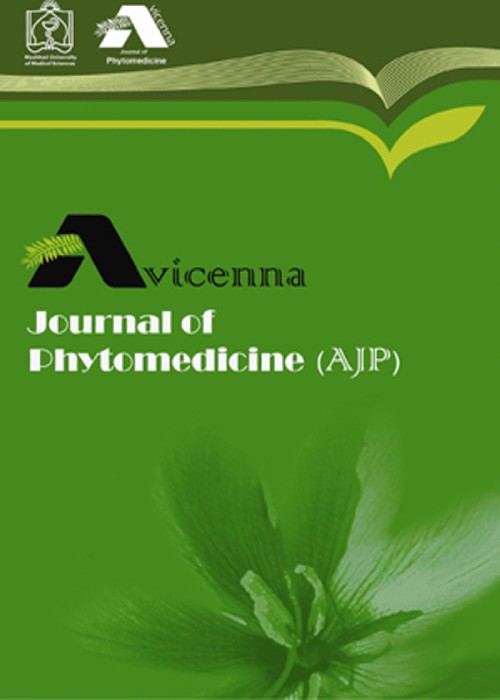Protective effect of Nigella sativa and thymoquinone on serum/glucose deprivation-induced DNA damage in PC12 cells
Author(s):
Abstract:
Objective
The discovery and development of natural products with potent antioxidant properties has been one of the most interesting and promising approaches in the search for treatment of CNS injuries. The most significant consequence of the oxidative stress is thought to be the DNA modifications, which can become permanent via the formation of mutations and other types of genomic instability resulting cellular dysfunction. Serum/glucose deprivation (SGD) has served as an excellent in vitro model for the understanding of the molecular mechanisms of neuronal damage during ischemia and for the development of neuroprotective drugs against ischemia-induced brain injury. Nigella sativa (N. sativa) seeds and thymoquinone (TQ), its most abundant constituent, have been shown to possess anti-inflammatory, antioxidant, chemopreventive and anti-neoplastic effects both in vitro and in vivo. Therefore, in this study we investigated genoprotective effects of N. sativa and TQ on DNA damage of PC12 cells under SGD condition. Materials And Methods
PC12 cells were cultured in DMEM medium containing 10% (v/v) fetal bovine serum, 100 units/ml penicillin, and 100 µg/ml streptomycin. Initially cells were pretreated with different concentrations of N. sativa extract (NSE), (10, 50, 250 µg/ml) and TQ (1, 5, 10 µg/ml) for 6 h and then deprived of serum/glucose (SGD) for 18 h. The alkaline comet assay was used to evaluate the effect of these compounds on DNA damage following ischemic insult. The amount of DNA in the comet tail (% tail DNA) was measured as an indicator of DNA damage. Results
A significant increase in the % tail DNA was seen in nuclei of cells following SGD induced DNA damage (p<0.001). In the control groups, no significant difference was found in the % tail DNA between NSE- or TQ-pretreated and vehicle-pretreated PC12 cells (p>0.05). NSE and TQ pretreatment resulted in a significant decrease in DNA damage following ischemic insult (p<0.001). This suppression of DNA damage by NSE and TQ was found to be dose-dependent.Conclusion
These data indicate that NSE and TQ have a genoprotective property, as revealed by the comet assay, under SGD condition in PC12 cells.Keywords:
Language:
English
Published:
Avicenna Journal of Phytomedicine, Volume:2 Issue: 3, Summer 2012
Page:
125
magiran.com/p1008887
دانلود و مطالعه متن این مقاله با یکی از روشهای زیر امکان پذیر است:
اشتراک شخصی
با عضویت و پرداخت آنلاین حق اشتراک یکساله به مبلغ 1,390,000ريال میتوانید 70 عنوان مطلب دانلود کنید!
اشتراک سازمانی
به کتابخانه دانشگاه یا محل کار خود پیشنهاد کنید تا اشتراک سازمانی این پایگاه را برای دسترسی نامحدود همه کاربران به متن مطالب تهیه نمایند!
توجه!
- حق عضویت دریافتی صرف حمایت از نشریات عضو و نگهداری، تکمیل و توسعه مگیران میشود.
- پرداخت حق اشتراک و دانلود مقالات اجازه بازنشر آن در سایر رسانههای چاپی و دیجیتال را به کاربر نمیدهد.
In order to view content subscription is required
Personal subscription
Subscribe magiran.com for 70 € euros via PayPal and download 70 articles during a year.
Organization subscription
Please contact us to subscribe your university or library for unlimited access!


